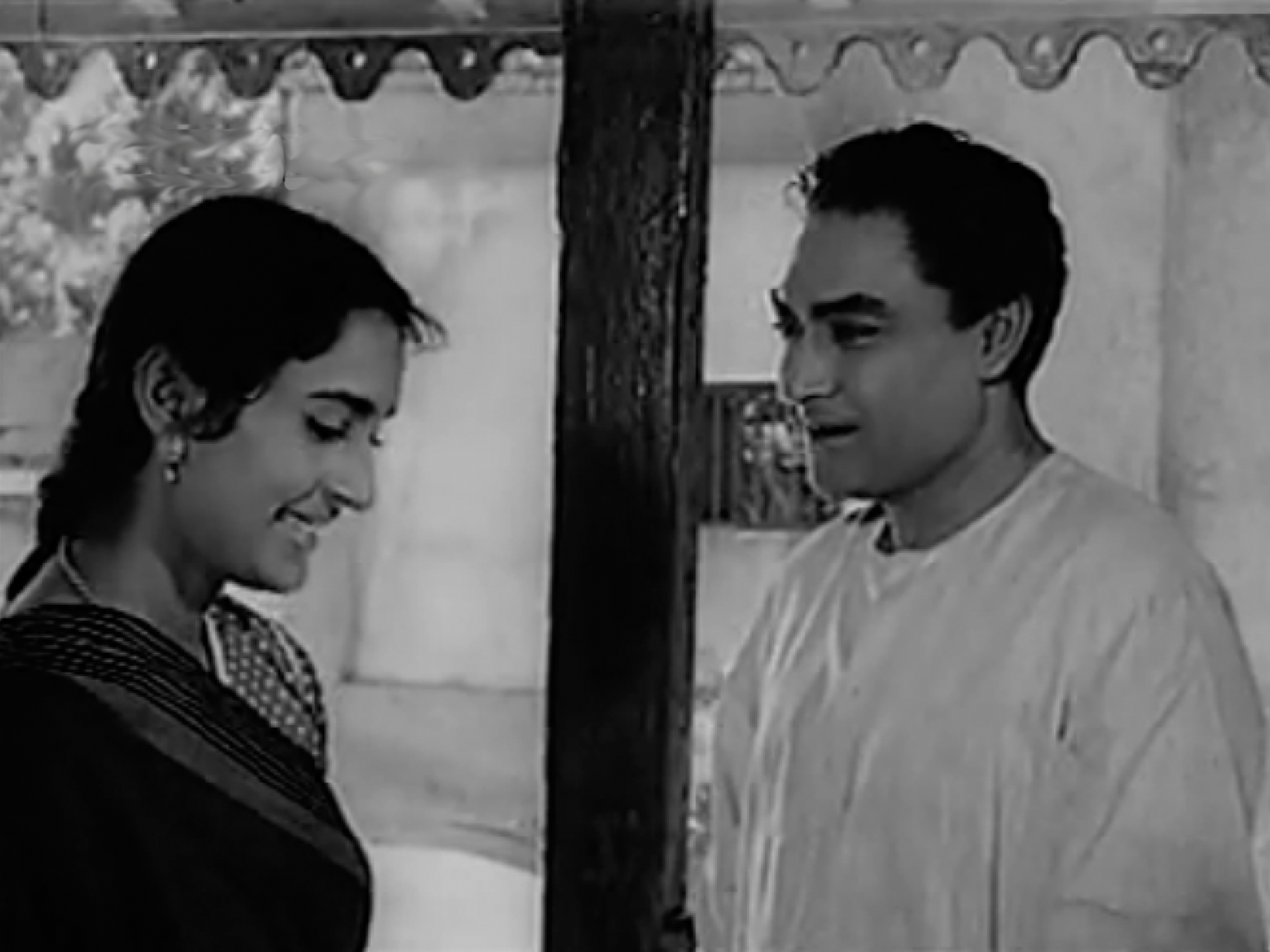There is a scene in Bimal Roy’s Bandini where Nutan’s Kalyani is described as Annapurna…the goddess of an abundant kitchen. She is half in love with a rebel (Ashok Kumar) who comes every evening to discuss lyrical poetry with her father and enjoys her cooking but it is when he describes her as a woman who, like her name, is propitious that she irrevocably falls for him. There seems to be this connection between food and soul nourishment that our cinema explores sometimes within the realm of cliches, sometimes in a territory that is just about the human need for care and sustenance.
In Bapu’s Prem Pratigya, Madhuri Dixit’s firebrand dibbewali, cooks khichdi for a man who has given her shelter after a tragedy and he (Mithun Chakraborty) eats it with his hands, wiping the bowl clean.
I don’t think this is a gender specific thing though, this need to cook and nurture. I know of men who are better cooks than their wives. One of my most cherished memories is a summer evening in Chamba in the garden of an uncle who had cooked and laid out on mats, an al-fresco feast of chaats, family favourites and falooda with ice-cream for his guests all by himself.
He loved to eat and to feed people. He perhaps got it from his mother, my nani who pampered her grandchildren with dahi vadas, pressure-cooked cakes and home-made pickles. She knew who liked what and so one day when I reached her hill cottage after a long bus journey, she served me sweet and sour pumpkin curry with rice because it was my favourite.
I do want to be, at some point the kind of grandmother she was but my son will probably not need me to cook as much. He has been cooking from the age of six. It started with a passion fruit juice in a salt rimmed glass and he has since then cooked pizzas from a scratch, whipped up pastas, created granitas, baked chocolate fondants, brownies, perfect French fries and breakfast eggs.
Needless to say, my basic cooking does not measure up to his skills and on days when he laps up a parantha or a Gujarati karhi and says, “That was good, mother,’ I feel like a school kid who has pleased a tough teacher. Unlike the Fortune oil moms who worry about how they will feed their sons once they are away to start their lives, I will miss being nurtured by my child, with a hot cup of the world’s best lemon tea.
This is not to say that I don’t enjoy cooking. I do especially when am not in a hurry and can take my time over cutting the vegetables, planning the tadkas and the masalas I want to grind to flavour a certain curry. The other day, at work, a sudden craving for daal with heeng tadka assailed me and the only thing to do was to come back home after a long day and cook it myself. That is when it struck me. There comes a time in your life when you have to nurture yourself because only you know how to do it.
I am slowly going back to my mother’s simple cooking that was more about wholesomeness than flourish and it gives me a great joy that am able to, on most days of the week, put together a decent meal. The sizzle of heeng tadka, the slowly roasting chillies, a crisp poori with aloo bhaji, rotis with desi ghee, stuffed paranthas with pickle and curd, rajma, masala bhindi and mixed vegetables cooked in mustard oil give me a great sense of fulfilment. The kind I experienced a child in some favourite family kitchens and I hope, some of that satisfaction is being transferred to my son.
 with The New Indian Express Reema Moudgil works for The New Indian Express, Bangalore, is the author of Perfect Eight, the editor of Chicken Soup for the Soul-Indian Women, an artist, a former RJ and a mother. She dreams of a cottage of her own that opens to a garden and where she can write more books, paint, listen to music and just be silent with her cats.
with The New Indian Express Reema Moudgil works for The New Indian Express, Bangalore, is the author of Perfect Eight, the editor of Chicken Soup for the Soul-Indian Women, an artist, a former RJ and a mother. She dreams of a cottage of her own that opens to a garden and where she can write more books, paint, listen to music and just be silent with her cats.





